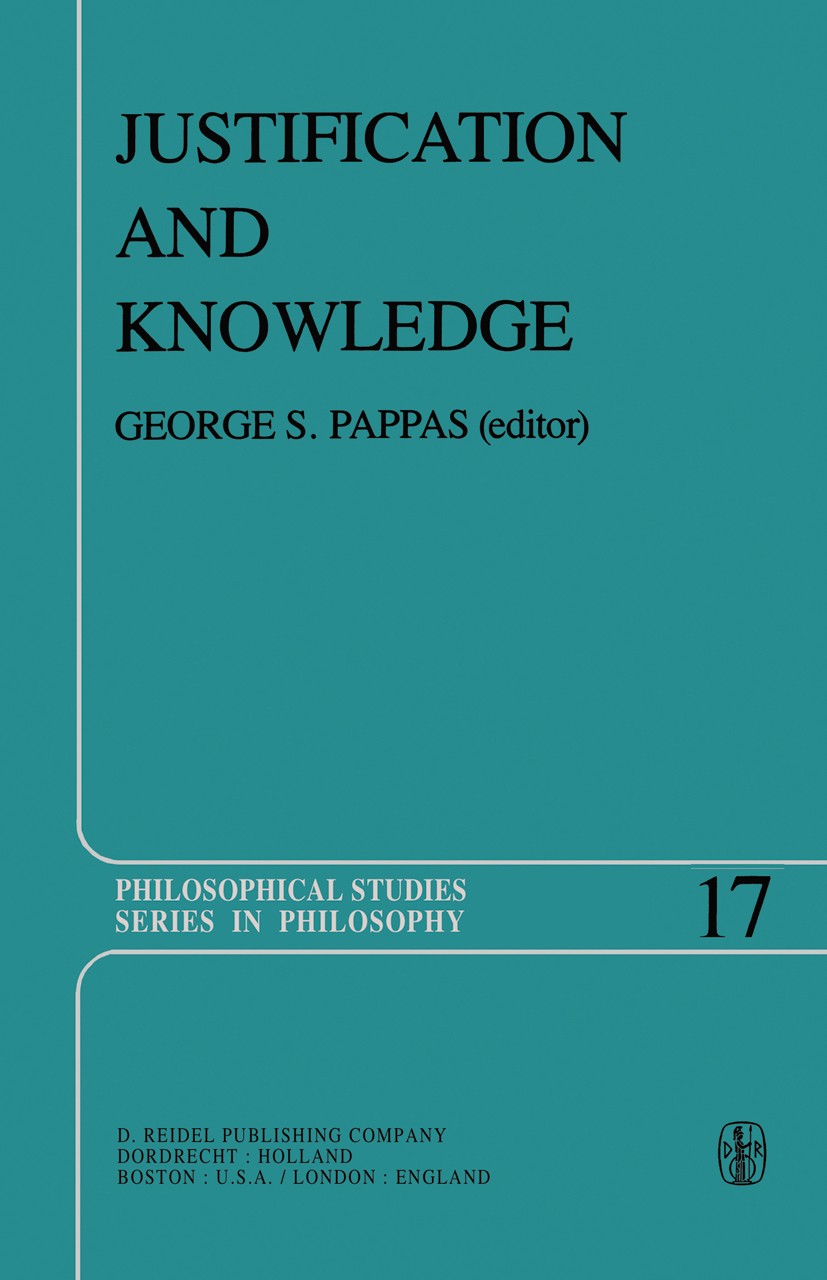| 书目名称 | Justification and Knowledge | | 副标题 | New Studies in Epist | | 编辑 | George Sotiros Pappas | | 视频video | http://file.papertrans.cn/502/501769/501769.mp4 | | 丛书名称 | Philosophical Studies Series | | 图书封面 |  | | 描述 | With one exception, all of the papers in this volume were originally presented at a conference held in April, 1978, at The Ohio State University. The excep tion is the paper by Wilfrid Sellars, which is a revised version of a paper he originally published in the Journal of Philosophy, 1973. However, the present version of Sellars‘ paper is so thoroughly changed from its original, that it is now virtually a new paper. None of the other nine papers has been published previously. The bibliography, prepared by Nancy Kelsik, is very extensive and it is tempting to think that it is complete. But I believe that virtual com pleteness is more likely to prove correct. The conference was made possible by grants from the College of Human ities and the Graduate School, Ohio State University, as well as by a grant from the Philosophy Department. On behalf of the contributors, I want to thank these institutions for their support. I also want to thank Marshall Swain and Robert Turnbu~l for early help and encouragement; Bette Hellinger for assistance in setting up the confer ence; and Mary Raines and Virginia Foster for considerable aid in the pre paration of papers and many other conference m | | 出版日期 | Book 1979 | | 关键词 | bibliography; coherence; epistemology; issue; journal; knowledge; philosophy; present; realism | | 版次 | 1 | | doi | https://doi.org/10.1007/978-94-009-9493-5 | | isbn_softcover | 978-90-277-1024-6 | | isbn_ebook | 978-94-009-9493-5Series ISSN 0921-8599 Series E-ISSN 2542-8349 | | issn_series | 0921-8599 | | copyright | D. Riedel Publishing Company, Dordrecht, Holland 1979 |
The information of publication is updating

|
|
 |Archiver|手机版|小黑屋|
派博传思国际
( 京公网安备110108008328)
GMT+8, 2026-2-9 12:09
|Archiver|手机版|小黑屋|
派博传思国际
( 京公网安备110108008328)
GMT+8, 2026-2-9 12:09


